There have been many generations of the Volkswagen Jetta. Below you will find the top years for every generation of the Volkswagen Jetta, along with the years you should avoid.
The iconic Volkswagen Jetta has been categorized into best and worst years in this guide.
All Volkswagen Jetta generations are classified based on owner reports, reliability ratings, and safety ratings.
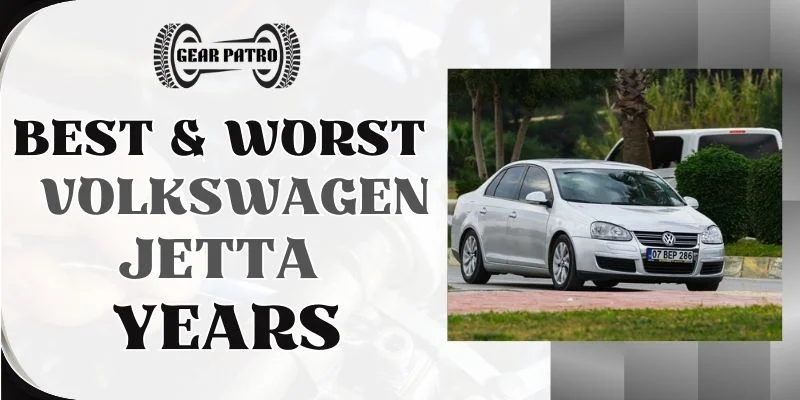
The 3rd to 7th generations of the Volkswagen Jetta will be discussed, focusing on their best and worst years. The previous generations will not be discussed in this guide due to the lack of data and their age, which makes them less relevant for modern consumers.
Due to its affordability, fuel efficiency, and impressive performance, the Volkswagen Jetta has become a mainstay in today’s global automotive market.
Volkswagen Jetta Generations
We will focus our attention on the following Volkswagen Jetta iterations to provide you with a better understanding:
| Generation | Years |
| Volkswagen Jetta 3rd Generation (A3) | 1993-1998 |
| Volkswagen Jetta 4th Generation (A4) | 1999-2005 |
| Volkswagen Jetta 5th Generation (A5) | 2006-2010 |
| Volkswagen Jetta 6th Generation (A6) | 2011-2018 |
| Volkswagen Jetta 7th Generation (A7) | 2019-Present |
There are often major changes between generations of vehicles, which can have a great effect on their appeal. Therefore, when evaluating the best and worst years of a car, it is important to take its generation into account.
But what does Neutral Years mean? It is an average year that neither stands out for excellence nor poses any particular problems. In terms of performance, they are decent, but not enough to be considered a Best Year.
The following factors contribute to our categorization:
Cars with high recall numbers can have their score lowered due to negative factors such as NHTSA recalls. It is also likely that a model year with a lot of recalls will be less reliable.
Volkswagen Jetta Best, Neutral, and Worst Years
In the table below, you will find the overall Car Smite score, which is based on the combination of ratings from the sources previously mentioned.
We have categorized the 3rd through 7th generations of the Volkswagen Jetta based on the factors mentioned above:
| Generation | Best Years | Neutral Years | Worst Years |
| 3rd Generation (1993-1998) | 1993 1994 1995 | 1997 1998 | 1996 |
| 4th Generation (1999-2005) | 2001 2003 2005 | 2002 | 1999 2000 2004 |
| 5th Generation (2006-2010) | 2006 2007 | 2008 | 2009 2010 |
| 6th Generation (2011-2018) | 2016 2017 2018 | 2011 2012 2014 | 2013 2015 |
| 7th Generation (2019-Present) | 2019 2022 | 2021 | 2020 2023 |
In order to understand why some years were better than others, let’s take a deeper look at each generation.
Volkswagen Jetta’s Early Years
During the 1979-1984 production period, the first generation of the Jetta was characterized by its squared-off body.
The second generation of the Jetta lasted from 1984 to 1992, making it the longest-running model so far. We know the Jetta we know today because of both of these generations.
Best & Worst Years for Volkswagen Jetta 3rd Generation (1993-1998)
In 1993-1998, Volkswagen introduced its third generation Jetta with a more rounded design, a departure from its predecessor’s boxier appearance.
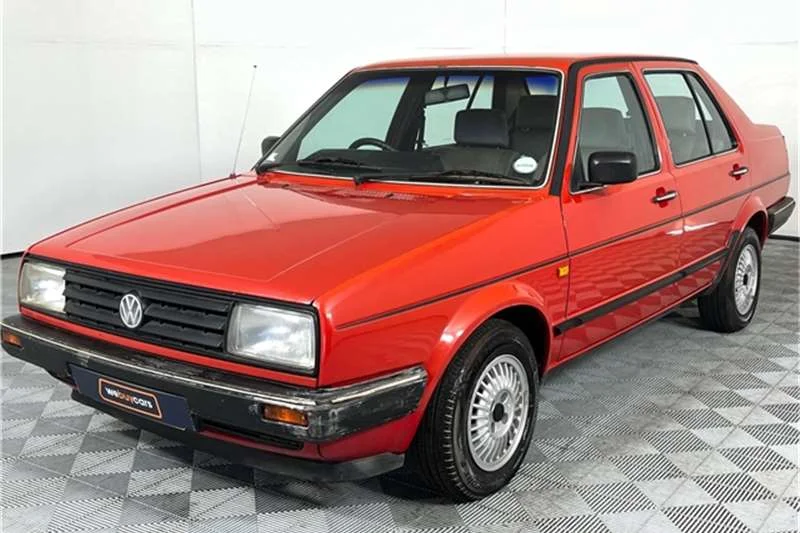
In the European market, it was referred to as the Volkswagen Vento, which marked a new naming convention.
Best Years: 1993, 1994, 1995
It was during these years that the third-generation Jetta reached its peak. All models introduced in 1993 featured an all-new engine lineup, an updated body style, and upgraded safety features such as dual front airbags and antilock brakes.
An improved fuel efficiency and a new sound system continued to enhance the 1994 model on the successes of the previous year. As a result of the introduction of the GLX VR6 172-hp V6 engine in 1995, the compact sedan set new benchmarks.
Neutral Years: 1997, 1998
The models of these years didn’t see much innovation or enhancement, but they maintained the same degree of reliability as their predecessors. It had a few minor recalls but nothing that seriously affected its reputation.
In 1998, there were mainly aesthetic changes, such as a redesigned front end.
Worst Year: 1996
As far as Jetta was concerned, 1996 wasn’t a good year. A variety of engine problems plagued this year despite the arrival of the famous TDI diesel motor.
A decline in consumer satisfaction was attributed to complaints about engine stalling and transmission failures.
Best & Worst Years for Volkswagen Jetta 4th Generation (1999-2005)
There has been a significant improvement in the design and technology of Volkswagen’s fourth-generation Jetta, as well known as the Volkswagen Bora in some markets.
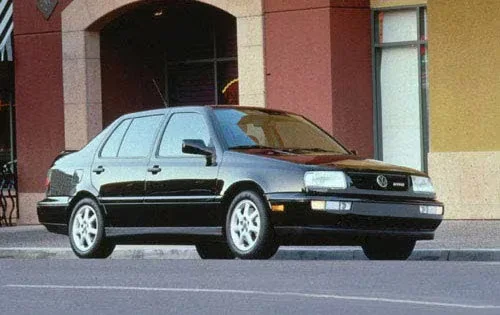
Best Years: 2001, 2003, 2005
A number of substantial upgrades were made to the Jetta during these years. A significant improvement in safety was provided by the Electronic Stability Program (ESP) introduced in 2001. With the introduction of the 1.8T in 2003, Honda introduced a powerful yet efficient turbocharged engine.
With the introduction of the 2.0L TDI engine in 2005, the 1.9L TDI engine had been replaced with an even more fuel-efficient and powerful version.
Neutral Year: 2002
There were no significant updates for the 2002 model year, but its engines continued to provide reliable performance.
While steady, it was overshadowed by the years that followed it that were high-performing.
Worst Years: 1999, 2000, 2004
There were numerous issues faced by the fourth-generation Jetta during these years. It is common for ignition coil packs to fail on 1999 and 2000 models, which leads to engine misfires.
A number of complaints were filed in 2004 regarding problems with automatic transmissions requiring expensive repairs or replacements.
Best & Worst Years for Volkswagen Jetta 5th Generation (2006-2010)
In 2005, Volkswagen introduced the fifth generation of the Jetta, bringing added strength and refinement to the design.
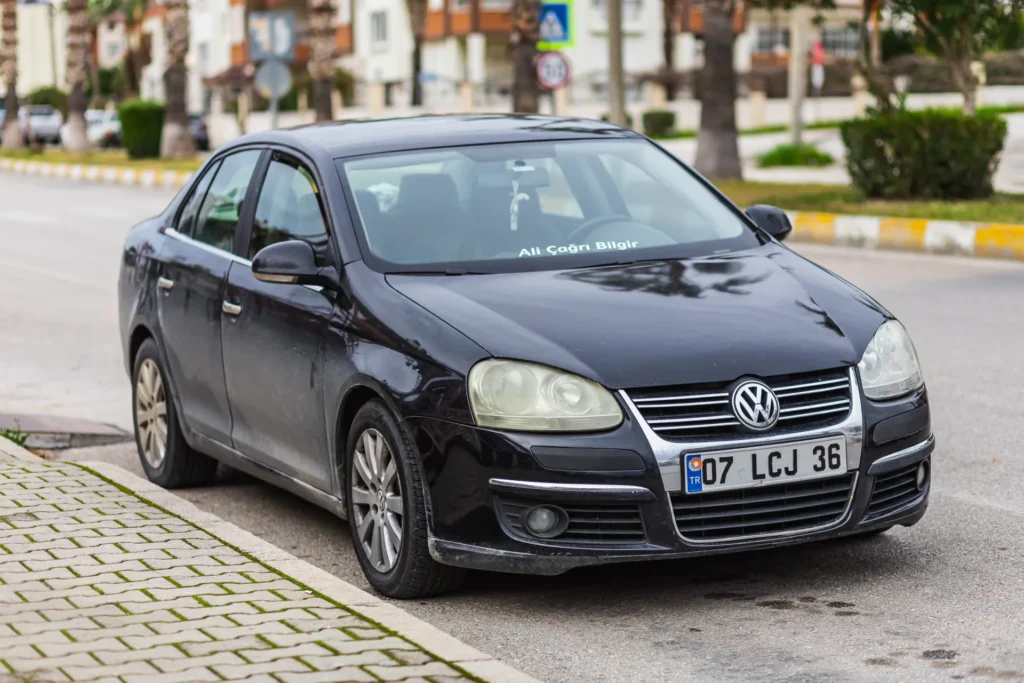
The essence of these products remained the same despite the variety of marketing names around the world.
The Best Years: 2006, 2007
As a result of these improvements, the Jetta has made significant inroads when it comes to performance and safety. Introducing the 2.5L five-cylinder engine in 2006, this generation was well balanced between fuel efficiency and power.
As a result of new suspension tuning and the addition of an optional electronic stability control, the 2007 model featured enhanced handling and stability.
Neutral Year: 2008
Most of the features from the previous year were carried over into the 2008 Jetta. Despite not particularly exhibiting any improvements, the automobile offered solid performance, a comfortable ride, and an attractive interior. In addition to delivering the qualities that made this generation so popular, it continued to be a good choice.
Worst Years: 2009, 2010
There were reliability issues during these years, which tarnished these years.
In some cases, the timing chain on certain engines malfunctioned, as did the ABS and ESP control modules. Owners often complained that these problems led to expensive repairs and ruined their experience overall.
Best & Worst Years for Volkswagen Jetta 6th Generation (2011-2018)
In 2010, the 6th generation Jetta was launched, featuring a larger and more affordable body. It was targeted directly to North American consumers. The interior quality was cut back compared to previous generations, resulting in mixed reviews.
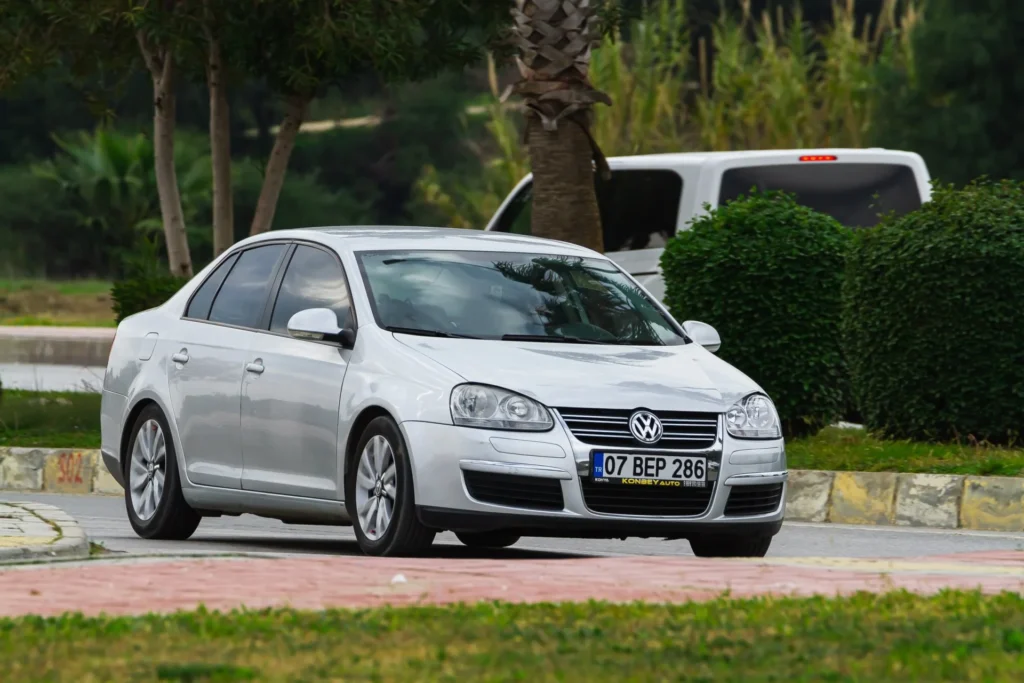
Best Years: 2016, 2017, 2018
The 6th generation was in its prime during these years. Models with new driver assistance technologies and improved interior quality were reported to have few problems.
Special praise was given to the 2016 model’s spacious interior and trunk, comfortable ride, and technology that’s easy to use.
Neutral Years: 2011, 2012, 2014
There was neither an exceptional good nor a bad year in these years. The interior materials and engine performance were uninspiring, but they were reasonably reliable. There was a consistent, but not exceptional level of customer satisfaction during these years with these models.
Worst Years: 2013, 2015
In these years, there were more problems than they should have been.
Due to a defect with the rear suspension, many 2013 Jettas were recalled due to the potential for a crash.
In spite of a few improvements to the engine, the 2015 Jetta encountered emissions problems, particularly in diesel versions, resulting in the much-publicized “Diesel Gate” scandal.
Best & Worst Years for Volkswagen Jetta 7th Generation (2019-Present)
It has been able to return to form with a more upscale feel and advanced technology features in the 7th generation, which was introduced in 2018.
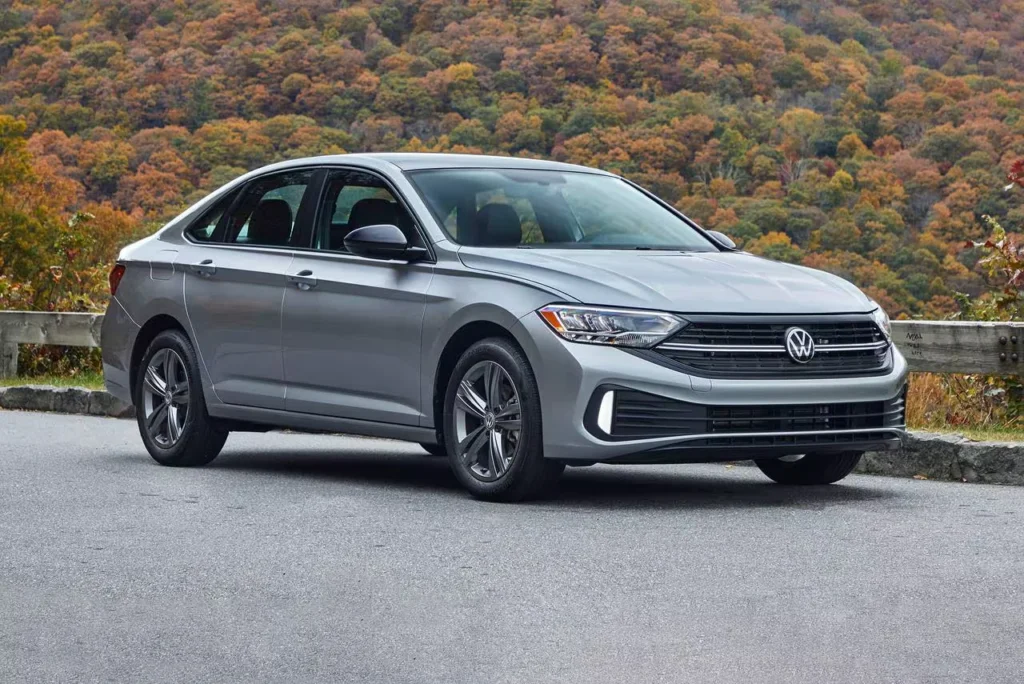
Best Years: 2019, 2022
A new platform, MQB, and a complete redesign marked the start of a new era for the Jetta.
It featured an upgraded ride, a larger interior, and new features such as an infotainment system and advanced driver assistance systems. A great deal of reliability and customer satisfaction were offered by the 2022 model.
Neutral Year: 2021
With a few minor updates, the 2021 Jetta maintained the features of its 2020 predecessor.
However, it did not stand out as an especially noteworthy year as far as reliability and customer service are concerned.
Worst Years: 2020, 2023
As the Jetta entered these years, it encountered a few hiccups. The automatic emergency braking system on the 2020 model could fail to engage, resulting in a major recall.
It is too early to be able to judge the 2023 model’s reliability, but the infotainment system has already been the subject of some complaints.
Best & Worst Porsche Cayenne Years | Years To Avoid
Best & Worst Mini Cooper Years | Years To Avoid
Best & Worst GMC Acadia Years | Years to Avoid
Conclusion
You are now able to make an informed decision if you’re buying a used Volkswagen Jetta car. Our list of the best Volkswagen Jetta years to buy and the worst Toyota Jetta years to avoid will help you make an informed choice.
Are any of you the owners of one of the “best year” Jettas we listed? Have your experiences been consistent with our findings? Your comments below would be greatly appreciated.
